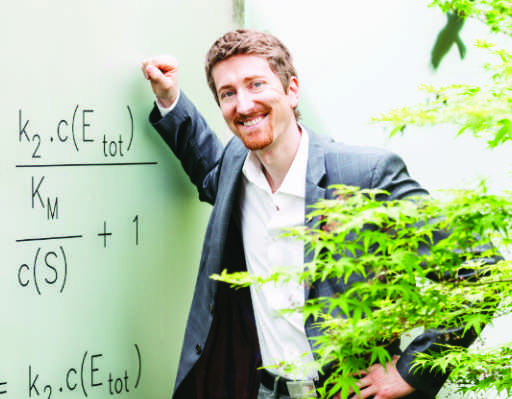Yeast has been both a great model organism, as well as an efficient host for protein and metabolite production. Did you know that acib has made it even better.
Background
Yeasts, like all fungi, feature ergosterol as their main sterol in membranes, while animals produce cholesterol instead. Both sterols play important roles in their respective membranes, but are still similar enough to be exchanged in ‘humanized’ yeast models. Since cholesterol is both an interesting precursor and involved in the pathogenesis of various diseases such yeasts allow for unique R&D projects.
Technology
acib’s researcher have a longstanding experience in lipid metabolism and optimizing yeasts such as S. cerevisiae and P. pastoris for various purposes. ‘Humanized’ yeasts containing cholesterol is especially interesting, as it not only expands the scope of yeast as a model organism for medical research, but it also opens new possibilities in biotechnology. For ex‐ ample, the functional expression of mammalian (cholesterol dependent) membrane proteins. These membrane proteins could be investigated/ characterized, but also used for developing a drug-screening assay with drug-binding/activation of the human receptor leading to a colour/light reaction much cheaper, more reliably and with an easier read-out than working with human cells.
Cholesterol is also an interesting precursor. It can be used for synthesis of steroid hormones (glucocorticoids, progestins, estrogen, androgen …) and cholesterol esters. The latter can be used, for example, for artificial vesicles in pharma applications. The biosynthesis of 7-dehydrocholeste‐ rol (7-DHC) and subsequent conversion to vitamin D3 (calciferol) would be another example.
Cholesterol is also an interesting precursor. It can be used for synthesis of steroid hormones (glucocorticoids, progestins, estrogen, androgen …) and cholesterol esters. The latter can be used, for example, for artificial vesicles in pharma applications. The biosynthesis of 7-dehydrocholeste‐ rol (7-DHC) and subsequent conversion to vitamin D3 (calciferol) would be another example.
Project Offer
Under protection of a CDA/NDA we provide you with professional strategies for using ‘humanized yeasts’ to your advantage. IP developed in such a project would fully belong to our investor/industrial partner.
Experts:
Prof. Dr. Harald Pichler, Dr. Anita Emmerstorfer-AugustinAvailable for:
Joint Research Project, Contract Research, InvestmentsDevelopment status:
Technology Readiness Level 4 (Technology validated in lab)IPR:
IP will belong to you as our industrial partner/ our clientKeywords:
Saccharomyces cerevisiae, Pichia pastoris aka Komagataella phaffii, Cholesterol, Sterol biosynthesis pathway, Vitamin D production, Steroid hormone production, Medical research, Drug screening, Human membrane protein expression

